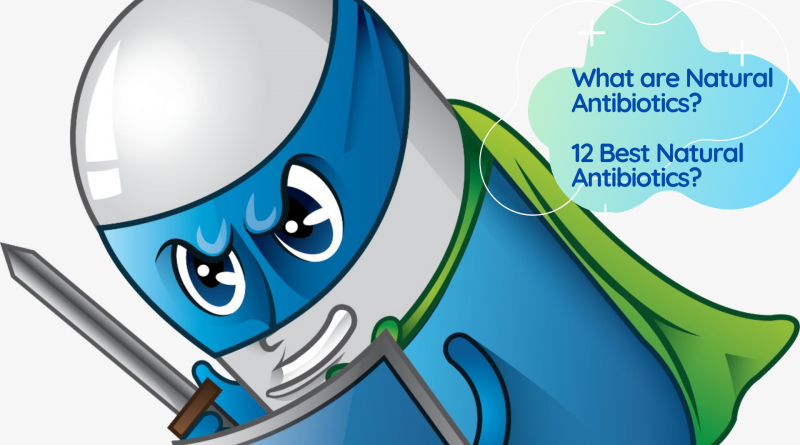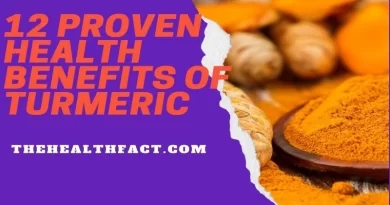What are Natural Antibiotics ? 12 Best Natural Antibiotics
Natural Antibiotics are a sort of God Gifted form of medicine that helps us to getaways of small to some time major diseases too. Natural antibiotics are nothing but spices and herbs that are available directly from nature that have properties that can reduce function and disseminate unwanted germs.
NOTE- The things mentioned below are according to research and shouldn’t be considered to use before your physician’s advice.
Table of Contents
12 Best Natural Antibiotics
- Ginger
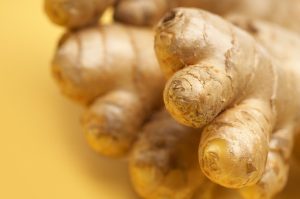
Ginger can fight many bacteria. As a therapeutic plant, ginger is one of the oldest and most popular in the world. It is used to relieve symptoms of inflammation, rheumatic diseases, and gastrointestinal inconvenience. Its root has carminative, stomach-related, sweat, anti-influenza, and stimulating properties. كازينو عبر الانترنت
In gastronomy, ginger is utilized as a flavoring and enhancing, giving spicy and reviving qualities. It is a crude material for the manufacture of beverages and bakery products like bread, cakes, cookies, jam, etc. In the cosmetics industry, its utilization is because of its aroma.
Also, Read | How Fast Does Hair Grow: Ways to Grow Hair
- Garlic
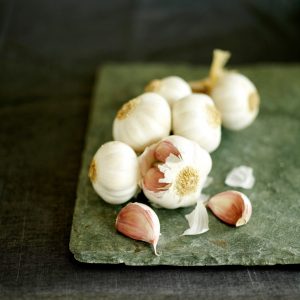
Garlic as an antibiotic is an effectively accessible spice in the market. The utilization of garlic antibiotics in treating infections is a long-standing practice in numerous societies. However, it was not until late years the specific motivation behind why garlic has such a lot of antibacterial, antifungal, and antiviral properties were studied.
Allicin is the most important compound found in garlic and has great antimicrobial capacities. It is the most active compound in garlic which gives it these properties. Allicin is exceptionally powerful against MRS (Multidrug Resistance Strains) bacterias which makes it highly valuable for the medical community.
Another segment found in garlic called Ajoene is additionally equipped for treating fungal infections, for example, athlete’s foot which numerous individuals experience the ill effects of around the world. Garlic concentrate can likewise be utilized for the treatment of influenza and herpes viruses and can convey positive outcomes.
This compound can easily eradicate bacteria by resisting the production or blocking the enzymes that are directly responsible for several vital functions of the bacteria such as energy production and cell structure formation. Without the necessary energy, the bacterias will die off in no time.
However, allicin can likewise effectively restrain the formation of biofilms which is one of the significant defense mechanisms utilized by bacterias and fungus. The formation of biofilms makes the treatment of these infections exceptionally troublesome and garlic can be utilized to prevent the formation of biofilms.
- Manuka Honey
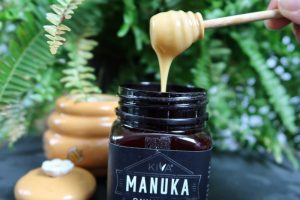
Manuka honey is for the most part accessible on the Australian continent, it is harvested from special honey bees that drink nectar from the flowers that are found on the Manuka tree.
The Manuka tree is discovered natively in New Zealand and Australia however can be cultivated overseas too. It is viewed as quite possibly the most medically viable and potent form of honey, there is still some more exploration that is expected to discover the specific components which give it the title.
This antibacterial is rich in methylglyoxal, which is a rare compound that has magnificent antimicrobial properties.
The honey is likewise loaded up with various compounds like propolis that are wealthy in flavonoids, esters, and phenolic acid which can actively boost your immune system to fight against infections.
It is additionally rich in enzymes, for example, glucose oxidase which can convert compounds of glucose over to hydrogen peroxide and accordingly decrease the affinity for infections.
This has been claimed to be a broad-spectrum antibacterial through years of plain observation that also can heal wounds on the feet caused by ulcers caused by antibiotic-resistant bacteria. It is also helpful to inhibit the varicella-zoster virus which is responsible for highly disturbing conditions such as chickenpox and shingles.
- Goldenseal

Goldenseal is usually consumed in tea or capsules to treat respiratory and digestive problems. However, it may also combat bacterial diarrhea and urinary tract infections.
Also, results from reliable sources of a recent study support the use of goldenseal for the treatment of skin infections. In a laboratory, goldenseal extracts were used to protect MRSA from harmful tissue.
The person taking prescription medications should have a doctor check before taking goldenseal, as this may lead to complementary intervention.
However, it likewise contains berberine, a significant segment of natural antibiotics. This alkaloid not safe for newborn children, or ladies who are pregnant or breastfeeding. Goldenseal containers are accessible to purchase in health stores or online.
- Turmeric
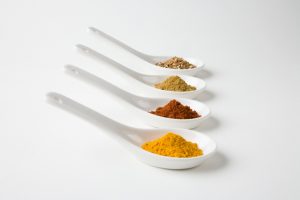
Turmeric is an Indian spice that is known for its antimicrobial properties. The utilization of turmeric is extremely strong and evident in Indian culture.
Known as Haldi, there is a real purification event for the bride that involves the use of turmeric to keep her clean from skin-based infections. Turmeric is additionally broadly utilized in numerous Indian dishes for its flavor and antimicrobial impacts.
Curcumin is the most active component in turmeric and it adds a ton of advantages to your body. Curcumin is viable in treating UTI (Urinary Tract Infections) as it has some powerful abilities in lessening the action of the microbes causing the infection.
It is additionally powerful in treating the fungus by hindering its protein absorption ability accordingly causing it to be effectless.
The anti-inflammatory of curcumin makes turmeric very effective in treating conditions caused because of stomach inflammations. مواقع المراهنات الرياضية Turmeric can work well with antibiotics reducing the latter’s harmful effects, studies have shown that turmeric can reduce inflammatory effects on the lungs when used with antibiotics
Turmeric is also famous for its effects against the highly volatile HIV and for its capacity to stop the replication of the hepatitis C infection.
- Clove
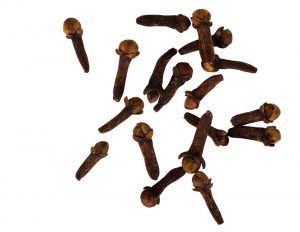
Cloves have traditionally been used in dental procedures. It is now being found in research that water extract of cloves can be an effective reliable source against many types of bacteria, including E.coli.
- Thyme Essential Oil
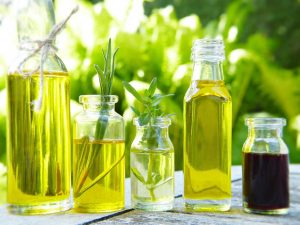
Some all-common household cleaners use thyme fundamental oil. This oil has been demonstrated to be particularly useful against anti-microbial safe microscopic organisms.
In a 2011 study, specialists tested the viability of both lavender and thyme essential oil. Two oils were tried in a pool of more than 120 strains of bacteria. The scientists discovered thyme essential oil to be more effective at killing bacteria than lavender essential oil.
This is for outer use only you shouldn’t take thyme essential oil with your mouth. Applying undiluted essential oil to the skin may cause inflammation and irritation.
People with high blood pressure or hyperthyroid issues shouldn’t use thyme essential oil.
- Cinnamon
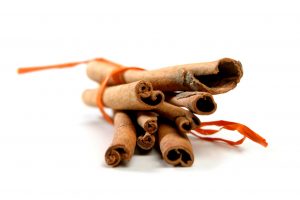
Cinnamon is a well-known herb mostly used in baked products. The requirement for cinnamon is consistently on the higher side because of its remarkable taste and design. It additionally has an extraordinary range of antimicrobial properties which makes it amazingly valuable for human consumption.
It has incredible antimicrobial and anti-inflammatory properties which are utilized broadly by elective medication experts all around the world. It is rich in cinnamaldehyde alongside compounds, for example, eugenol which are exceptionally effective in treating conditions that are caused because of bacteria and viruses.
This is useful in treating stomach conditions like ulcers. The utilization of cinnamon is exceptionally useful in treating skin conditions caused because of fungal activities such as candidiasis.
The utilization of cinnamon likewise should be managed somewhat as it can have certain interactions with drugs, so if you are under medications, you should talk with your doctor before implementing cinnamon into your diet.
- Lemongrass
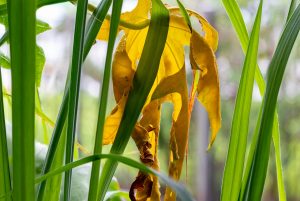
Lemongrass is a well-known ingredient around the world. The extraordinary smell of lemongrass makes it highly used in dishwashing cleansers and other hygienic products.
One more explanation for this is the reality lemongrass has incredible antibacterial, antifungal, and antiviral properties.
Citral alpha and citral beta compounds found in lemongrass are the main reason for the capacity it has in obstructing a wide range of bacterias in the format of lemongrass oil. Lemongrass oil is exceptionally useful in dealing with staph and salmonella bacterias and E-coli without causing any side effects, unlike antibiotics which have many side effects.
In a test conducted on guinea pigs, lemongrass extricate application was gainful in lessening the impacts of ringworm infection on the skin. Lemongrass oil is additionally powerful against candidiasis as it can inhibit the primary functions of the fungs.
One other splendid advantage of this natural antibiotic is that it can stop the replication of HIV infection by diminishing the capacity of HIV-1 TAT protein.
- Neem
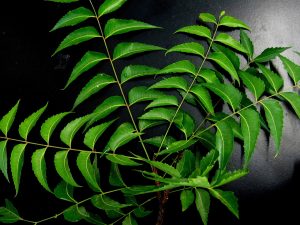
Neem is the best source of natural and herbal antibiotics available in nature. Neem Tree, otherwise called ‘Azadirachta Indica is a tree native to India. In Sanskrit, neem is an arista, which implies something perfect, imperishable, and complete.
Not only the leaves of neem but tree seeds, roots, and bark are also important compounds that have many medicinal and beautiful properties. Neem tree is supposed to denote ‘good health’ in our Ayurveda.
Leaves of neem contain more than 130 different types of organic compounds, such as Nimbin, Nimandial which promote healthy living and also heal the body. It is most popular for its anti-aging properties. Due to its antioxidant properties, neem shields the skin from hurtful UV rays, pollution, and other environmental factors.
Vitamins and fatty acids in neem improve and help in maintaining the elasticity of the skin, lessen wrinkles and fine lines. This makes you and your skin look rejuvenated and youthful. Neem is likewise advantageous in battling a fungal infection. Its anti-fungal and anti-bacterial properties keep the harmful bacteria and fungi under control.
Hence, it secures the skin and keeps skin-related illnesses away.
- Echinacea

Native Americans and other traditional healers have used echinacea for hundreds of years to treat infections and wounds. Researchers are beginning to understand why.
A study published in the Journal of Biomedicine and Biotechnology reports that extracts of Echinacea purpuria can kill many types of bacteria, including Streptococcus pyogenes (S. pyogenes). Pyogenes is responsible for strep throat, toxic throat syndrome, and toxic shock syndrome, and the flesh-eating disease known as necrotizing fasciitis.
It may also fight inflammation related to bacterial infection.
- Red Pepper
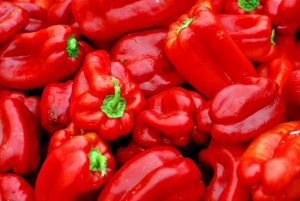
Red pepper is for the most part called capsicum in a different part of the world. There are numerous varieties of red pepper including cayenne, bean stew, and jalapenos. The predominance of pepper is available in numerous different parts of the world besides South America. They are honored with a ton of antibacterial properties that can help in making the microbes vanish from the site of infection.
Capsaicin is the compound that gives pepper the spice, it likewise helps in bringing down the pH of the stomach and in this manner prevents harmful bacterias from developing.
Different compounds present in peppers, for example, quercetin, kaempferol, and caffeic acid have an intrinsic capacity to harden the external layer of the bacterias and consequently puts a block to any retention of energy thereby killing it.
The CAY-1 compound present in the capsicum can disturb the external layer of the fungus and consequently act as an antifungal agent. It is profoundly successful in treating skin diseases including athletes’ feet.
In some cases, some natural antibiotics also can eliminate the presence of unwanted germs. Even though now there are many manmade antibiotics are available but they may have several side effects like – allergy etc.
But Natural Antibiotics have shown proven results under medical review and further studies are going on and they are best without any side-effect in comparison to normal antibiotics.
Risk of Natural Antibiotics
- Yes, natural antibiotics are good but you shouldn’t take them in more quantity because they can harm you and your body too. A person should inform their doctor or their health care provider before taking any of these supplements.
- One shouldn’t take antibiotics unnecessarily because taking antibiotics for the sake of antibiotics can lead your body to build up a resistance to the medication.
- For Example- Cooked Garlic is safe to consume but concentrated garlic according to research can increase the risk of bleeding and can be more dangerous for people taking surgery or taking blood thinners. كازينو العرب 888 Certain items should be avoided, including colloidal silver. This substance comprises microscopic pieces of silver suspended in water.
- Colloidal silver has been suggested as a treatment for a variety of illnesses, including the bubonic plague and HIV. Be that as it may, as indicated by the National Center for Complementary and Integrative Health, it tends to be risky, and no believable studies back up these uses.
- Taking colloidal silver supplements may interfere with the effectiveness of antibiotics and medication used to treat an underactive thyroid gland.
- Silver can likewise develop in the body and turn the skin pale blue dim. This condition is called argyria and is permanent in the vast majority.
- I am all for natural antibiotics because I believe they can be quite beneficial when used appropriately. But be careful as they can take risks so please do your research.
FAQ’s Related to Natural Antibiotics
- What is the best natural antibiotic?
Garlic can battle against a more extensive range of microbes which makes it one of the numerous best natural antibiotics available for consumption.
- Are Natural Antibiotics safe to use?
Natural antibiotics are undoubtedly safer than antibiotic capsules. However, there is a problem with natural antibiotics reacting to medications and should be well researched based on the drugs you consume. Also, you need to check if they do not have any dangerous reactions that may put your body at risk.
- What is the strongest natural antibiotic?
Oregano oil is the strongest antibiotic and consists of carvacrol and thymol as active constituents with antibacterial and antifungal properties. Also, according to the research, it is effective against many strains of bacteria such as E.coli. You can either mix it with water or coconut oil. Dosage will depend upon the condition you are treating. In case you are already on certain medications, talk to your doctor about potential interactions. Use a 100% effective and therapeutic grade oil, and don’t use it for more than 14 consecutive days.
- How do you kill bacteria naturally?
You can kill natural bacteria naturally by consuming the following ingredients:-
Garlic:- eating some cloves of garlic every day to kill the bacterias, viruses, and other infections. Garlic is used in treating the symptoms of hypertension, AIDS, and diabetes.
Onions:- onions have similar advantages as garlic. It has benefits in reducing pain and inflammation and some common illnesses like cold and flu.
Vitamin C:- vitamin c works on improving our immune system and repairs skin cells.
Cinnamon:- it has antibiotic properties and helps in treating yeast infection. Cinnamon is also used in adult diabetes.
Ginger:- it is commonly used for treating the common cold and flu. It is also proven good in treating muscle and joint pain and in nausea.
- Can you get rid of a bacterial infection without antibiotics?
Yes, you can get rid of the bacterial infection without getting antibiotics. About 70% of the people with acute sinus treat without taking antibiotics. The symptoms of mild sinus disappear within two weeks of infection. Our immunity works in a mild case and we don’t need medications for that. Therefore, many people don’t take medicines in acute colds or flu and get normal in a few days of illness.
- Is apple cider vinegar an antibiotic?
Yes, apple cider vinegar is useful in killing highly responsible bacteria such as E.coli and staphylococcus aureus. This was proven by a test tube study, that apple cider vinegar may too have antibacterial properties. Previously people were using this to preserve and add flavor to the food until they realized that it has some medicinal benefits such as lowering blood pressure and aiding weight loss. Apple cider vinegar has also helped lower high cholesterol.
- What is a natural antibiotic for the skin?
Honey is an excellent antibiotic for skin-related issues, and being used for ancient times. It consists of hydrogen peroxide, which accounts for its antibacterial properties. Egyptians use honey frequently as a natural antibiotic and skin rejuvenator.
- How do you treat a skin infection without antibiotics?
Some common skin issues are manageable without taking antibiotics. There are few remedies to get rid of common skin irritation and itching:-
Apply cold compression to your affected skin several times a day, such as an ice pack for relieving the itching and irritation.
You can use some over-the-counter medicines for itching such as cetirizine.
You can apply smoothening lotions and topical creams like calamine lotion and hydrocortisone creams.
- Is turmeric an antibiotic?
Turmeric is considered antimicrobial and has curcumin as an active ingredient. Curcumin gives a bright yellow color to the turmeric. Thus, it’s an effective spice to treat normal wounds and infections. People drink turmeric milk in cold and injuries. In Indian culture, everybody uses turmeric as a regular spice in food.
- What kills staph infection naturally?
Warm and cold compresses:- placing a warm cloth over the infection for some time helps to burst them. While a cold compression helps in getting rid of the pain and inflammation.
Pain killers:- some over-the-counter medicines may help in managing pain such as paracetamol or ibuprofen.
Topical ointments:- a topical antibiotic ointment would be suitable to prevent further infection and faster healing. But in case the wound is getting worse, better to consult a doctor.
Essential oils:- some essential oils such as coconut oil, oregano essential oils, eucalyptus essential oils, and others will help in healing the skin. It should be noted that using essential oils in concentrated form may irritate the skin.
